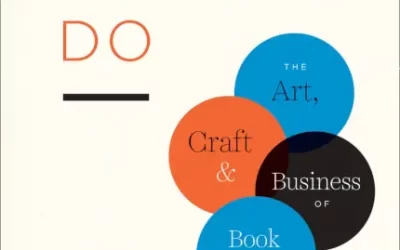Most young authors—including, but not limited to, authors of scientific and scholarly articles—have one main goal in mind: Get published as much as possible. But this way of thinking is just not always helpful for someone who is looking to establish a favorable reputation in the writing and editing world—in fact, in some cases, it can actually do the exact opposite.
This is particularly true for young authors who are working in academia. In today’s world, college and university administrators are facing tremendous pressure to reach a high ranking, in order to gain funding from both the government and private entities. This means they are encouraging—or perhaps even pressuring— faculty members to publish as many articles as they can, as quickly as they can (Source: https://www.csescienceeditor.org/article/evolving-research-attitudes-towards-journals-and-scholarly-publishers/)

Unfortunately, many less-than-reputable journals have caught on to this trend, and they make it a point to prey upon these college and university researchers, many of whom are only just beginning their careers in the scientific disciplines. Spotting these types of publications, which are commonly known as “predatory publishers,” can be difficult, because there is no “one size fits all” test to determine whether a journal is legitimate or not.
Still, there are four steps that would-be science writers might take before submitting their work to a particular journal. By following these preemptive actions, they can avoid embarrassment at best and a permanently tarnished name at worst:
- Search the Directory of Open Access Journals (DOAJ). The vast majority of predatory journals claim to be “open access,” because they are charging fees to authors for submissions. But unlike reputable open access journals, these publications are merely looking for a quick paycheck and offer no benefit to the author in terms of getting his or her name out to the scientific community. The DOAJ carefully screens its journals for these kinds of scams—so if a journal isn’t listed there, it should be considered a significant red flag. (Source: https://mdanderson.libanswers.com/faq/206446)
- Conduct a Google search for the journal in question. If other authors have been scammed by that journal in the past, there’s a good chance they weren’t too shy about letting the online world know it. Or, in some particularly egregious cases, news outlets might have even picked up a scientific journals predatory practices. And more often than not, these types of “horror stories” can be easily accessible by simply typing the journal name in the Google search bar. (Source: https://mdanderson.libanswers.com/faq/206446)
- Investigate the journal’s official website. Does that website contain numerous glaring spelling and/or grammar errors? Does the “editorial board” contain names of individuals who don’t even mention the journal on their LinkedIn pages and/or university website bios? Does the journal list contact details in one country but claim to have an office in another? If the answer to any of these questions is “yes,” something fishy is likely to be going on. (Source: https://www.rxcomms.com/blog/6-ways-spot-predatory-journal)
- Keep in mind what’s too good to be true. Many prestigious publishers and journals boast a quick turnaround time from submission to peer review to publication. However, at some point, things just stop being realistic. If, for instance, papers are consistently being accepted within less than a week of the so-called “peer-review process” taking place, chances are high that this “peer review” process is a sham. (Source: https://www.rxcomms.com/blog/6-ways-spot-predatory-journal)
Of course, following these steps is not a foolproof guarantee that an author won’t end up inadvertently submitting their work to a less-than-creditable publication. And if that does occur, it should not be a cause for shame—sometimes it just happens. But by taking these types of precautions, young scientific authors and researchers in academia can, at the very least, minimize their chances of taking several steps backward and possibly also bringing their institutions down. Scientific writing might seem to a beginner like a numbers game; still, at the end of the day, it’s quality, not quantity, that truly matters.
By: Anne Brenner
Anne is a Managing Editor at Technica Editorial




